In short:
- The US economy shrinks for the second time in a row, but is it a recession yet?
- The world’s first named heatwave, Zoe has hit Seville, Spain.
- Heat deaths have outpaced hurricane deaths over the past decade.
Economy, energy, supply chain
US economic growth shrunk by 0.9% in the second quarter of 2022, following a 1.6% drop in the first. Two consecutive quarters of negative GDP growth are usual signs of the economy entering a recession. Economists also look at employment, consumer demand, and a broader economic picture before declaring a recession.
The Federal Reserve had just raised interest levels by 0.75%. They might rise again in September, depending on how the inflation is doing. The Fed needs fewer job openings and lower wage inflation before it can ease off aggressive rate hikes. Here’s why there could be a slowing down of the economy but no recession.
Here are some numbers from Q2:
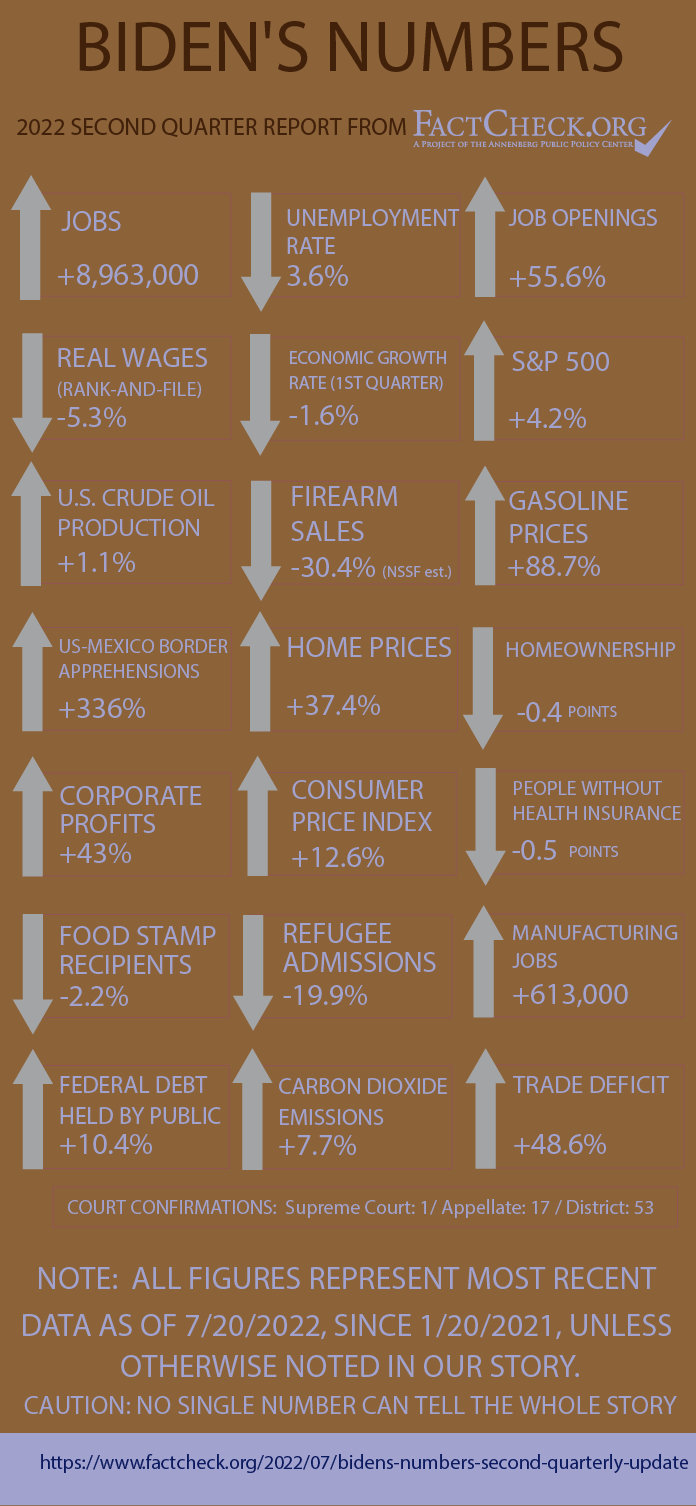
Senators Manchin and Schumer reached an agreement on the Inflation Reduction Act, a spending bill derived from Build Back Better that includes climate change spending, tax reform, and expanding health care:
Called the Inflation Reduction Act, the package aims to invest in clean energy, while allowing Medicare to negotiate drug prices and capping out-of-pocket drug costs for Medicare recipients at $2,000. https://t.co/3Mhc7s5oQ7
— CBS News (@CBSNews) July 28, 2022
The Senate approved the CHIPS act, and the Treasury will allow unspent Covid funds to be used for state and local affordable housing loans.
The US remains the world’s top oil producer and consumer.
Drought and extreme heat are driving future prices of soybean and corn up:
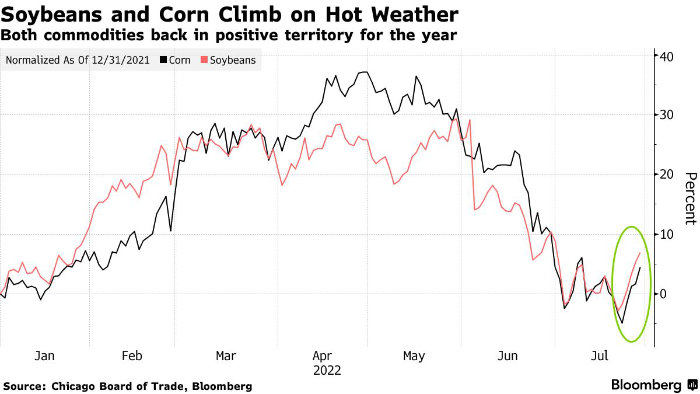
China and Uzbekistan are experiencing blackouts as extreme heatwaves push electricity usage to record levels.
Extreme heat, climate change, environment
The world’s first named heatwave, Zoe has hit Seville, Spain:
In Seville, the first heat wave has been named. 🚨 @ArshtRock and @PrometeoSevilla have named #HeatWaveZoe, the first heat wave to be named since Arsht-Rock's system was launched last month. Want to learn why naming heat waves is important?
👉 https://t.co/dYG4I6SfFi pic.twitter.com/SsMZFyyV1k
— Atlantic Council (@AtlanticCouncil) July 25, 2022
As a heatwave sweeps the US, the White House launched the Heat.gov website, a hub with tools like heat forecasts from NOAA and the National Weather Service, a new national Climate and Health Outlook developed by the Department of Health and Human Services, and the CDC’s Heat and Health Tracker:
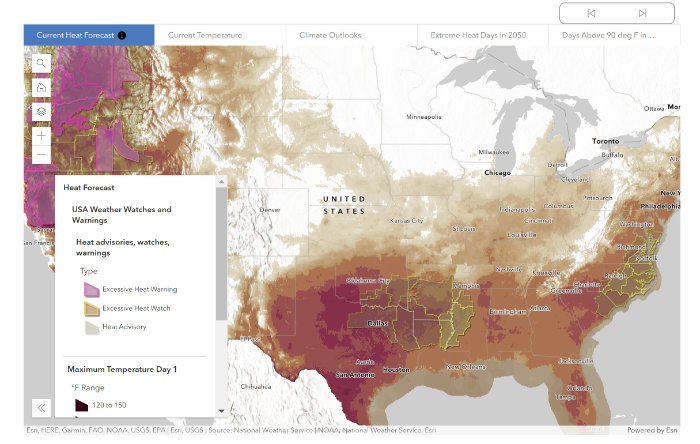
Heat deaths have outpaced hurricane deaths by more than 15-to-1 over the past decade.
NOAA’s three-month outlook:
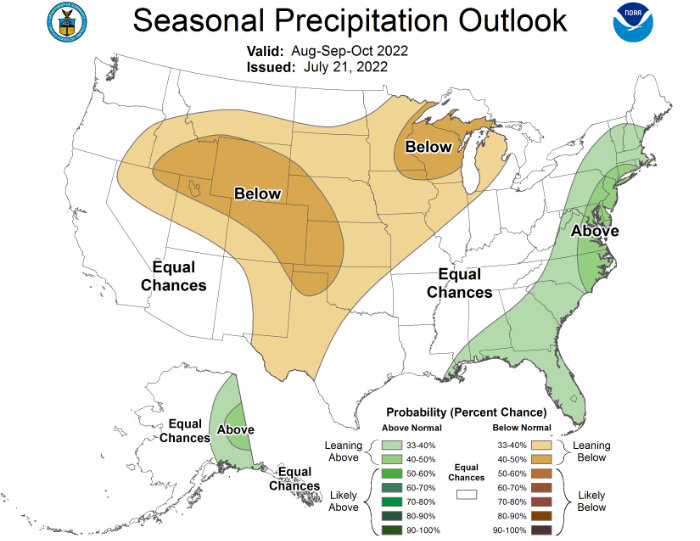
A melting glacier shifted the border between Italy and Switzerland.
English residents have been asked to ration water as reservoir levels fall low. People have been asked to take showers instead of baths and not to use hosepipes to water their gardens. Officials are preparing to declare a drought in August if dry conditions continue.
Western US wildfire smoke plumes are getting taller. The taller the smoke plume, the farther the fine particles can travel, potentially hurting more people. BTW, here’s why wildfire evacuations are really hard.
100 metric tonnes of plastic have been removed from the ocean!
BREAKING: more than 100,000kg of plastic removed from the Great Pacific Garbage Patch (GPGP).
Thank you to our determined offshore crew and supporters worldwide; together, we have now officially cleaned up 1/1000th of the GPGP. pic.twitter.com/DLWPNkspcr
— The Ocean Cleanup (@TheOceanCleanup) July 25, 2022
The rest
The CDC is set to make monkeypox a nationally notifiable condition, which means that each state will have to report a confirmed or probable monkeypox case within 24 hours. In doing so, the agency could better understand how fast and far the virus is spreading. 786,000 vaccine doses will be soon released as soon as they are cleared by the FDA. The US has the second-highest number of monkeypox cases in the world.
A recently published study shows disaster preparedness can save lives but isn’t as accessible to those most at risk. American families with children, renters, homes led by women, and those of low socioeconomic status, are unlikely to have the essential resources for immediate evacuation or sheltering for three days. Moreover, Asians and African Americans are less likely to have disaster preparedness.
Have a look at a 312-acre New Mexico prepping ranch built by a seismic-construction expert. The home has its own water supply, a year’s worth of propane, a solar energy system, multiple backup generators, and even a herd of yak. In case you want to pull resources together, you should know that community member M.E. has already dibs on the yaks 😉
Saudi Arabia is building a 100-mile-long mirrored skyscraper megacity. The Line will house 9M people in just a footprint of 34 Km (21 miles) and will be ready for the first residents in 2030. There will be no cars or roads, and every amenity will be only a five min walk away. A high-speed rail will carry people from end to end in 20 minutes. Some people might find this dystopian, but if they can pull off thriving in the desert while being carbon-neutral, then I’m all ears. But I wonder how this project will impact the local weather patterns, animal migration, etc:
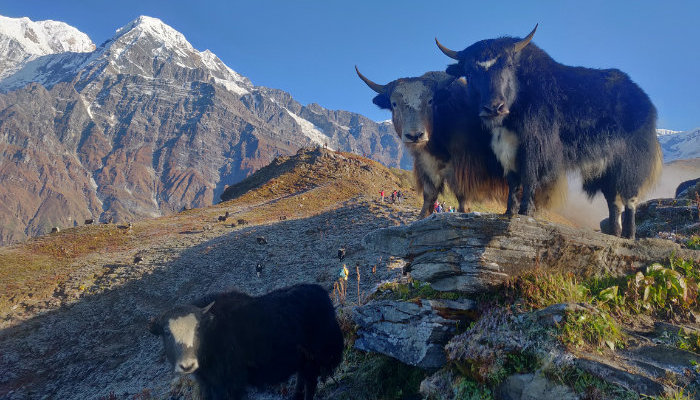
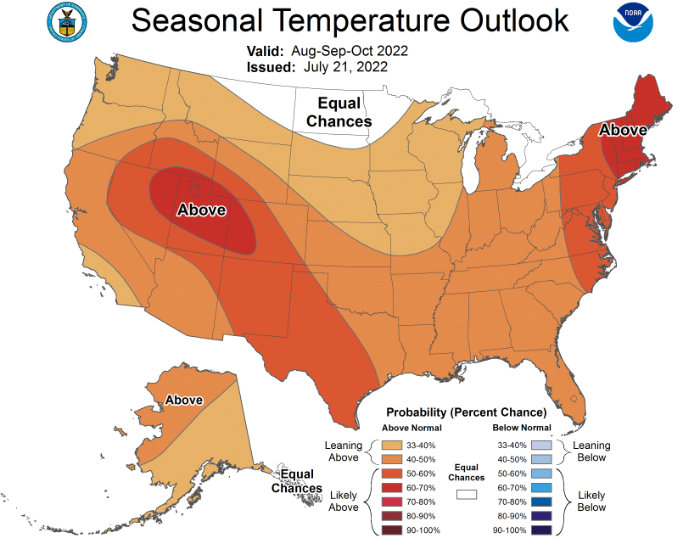
You are reporting the comment """ by on